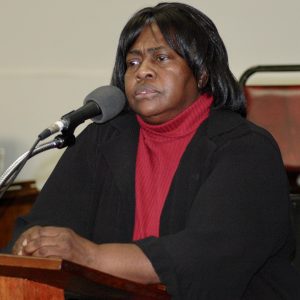The Emancipation Proclamation of 1863 which freed a large number of enslaved African Americans left out a larger number of slaves in the 1960s.
Slaves like Mae Louise miller were unaware that slavery had ended and thanks to the revelation made by Antoinette Harrell, we can all know why.
Historian and Genealogist Antoinette Harrell shared the shocking stories of slaves in Southern states like Louisiana, Mississippi, Arkansas, and Florida over hundred years after the Emancipation Proclamation.
She said a woman introduced her to about 20 people who had worked on the Waterford Plantation in St. Charles Parish as slaves until the 1960s.

The woman told her about how they had become indebted to the plantation’s owner and were not allowed to leave the property. At the end of the harvest, as they tried to settle up with the owner, they were always told they didn’t make it into the black and to try again next year. And every passing year, the workers fell deeper and deeper in debt.
Sadly, many of them were afraid to share their stories as they believed they will be sent back to the plantation which isn’t even in operation. Also, their fear was strengthened because the white families who owned these plantations are still in power and they have their own big businesses.
“So the poor and disenfranchised really don’t have anywhere to share these injustices without fearing major repercussions. To most folks, it just isn’t worth the risk. So, sadly, most situations of this sort go unreported,” she told Justin Fornal and was published in the art and culture magazine website Vice.
Read Also: Ndaté Yalla Mbodj: The African Queen Who Fought Against the French Colonization
Mae Louise Miller’s Sad Story
One of the 20th-century slaves was Mae Louise Walls Miller and she didn’t get her freedom until 1963. Her father, Cain Wall, lost his land by signing a contract he couldn’t read that enslaved his entire family.
Mae Louise Miller was a Hebrew Israelite woman who was kept in modern-day slavery known as peonage, near Gillsburg, Mississippi, and Kentwood, Louisiana until her family achieved freedom in early 1961.
They were not permitted to leave the land and the owners subjected them to beatings and rape. Mae and her mother were most times raped alongside each other by white men when they had to go to the main house to work.
According to Harrell’s narration, Mae and her family did not know what was happening outside the land as they had no TV. Her father tried to flee the property but was caught by other landowners who returned him to the farm where he was brutally beaten in front of his family.
When Harrell met Mae, her father was alive and he was 107 years old with a sharp memory. One time, he beat Mae when she was 14 years for attempting to flee the farm.
Mae, covered in blood, ran into the woods in the evening and hid in the bushes where a white family took her in and rescued the rest of her family later that night.
Harrell said the family suffered from PTSD as a result of their experiences and Mae died in 2014.
“I told you my story because I have no fear in my heart. What can any living person do to me? There is nothing that can be done to me that hasn’t already been done;” Mae told Harrell when they visited the property she and her family were held.
Antoinette Harrell Still believes it could happen again
Antoinette Harrell believes there are still African families who are tied to Southern farms in the most antebellum sense of speaking. She said, “If we don’t investigate and bring to light how slavery quietly continued, it could happen again.”
You can read Harrell’s full Interview at Vice.
